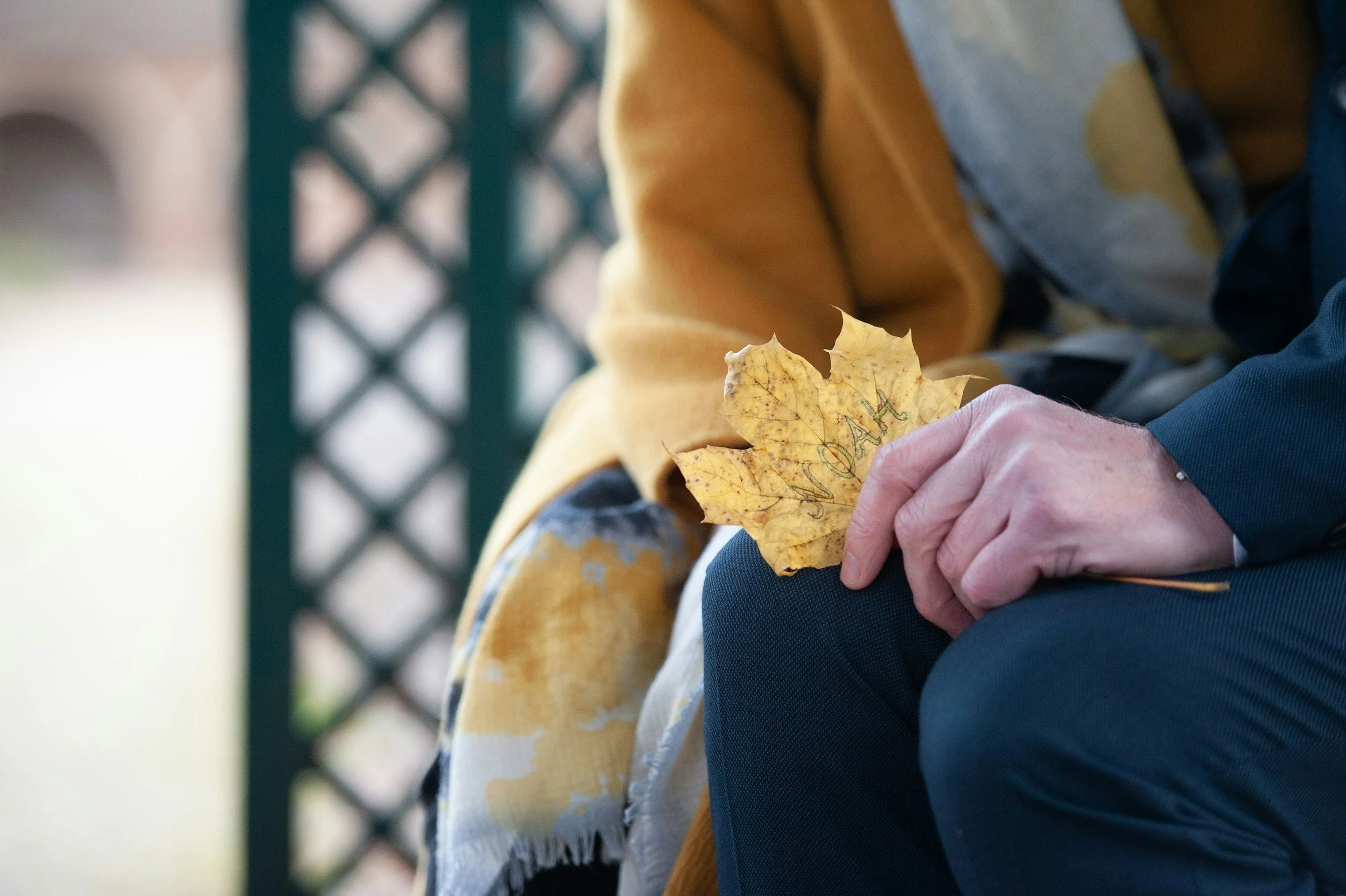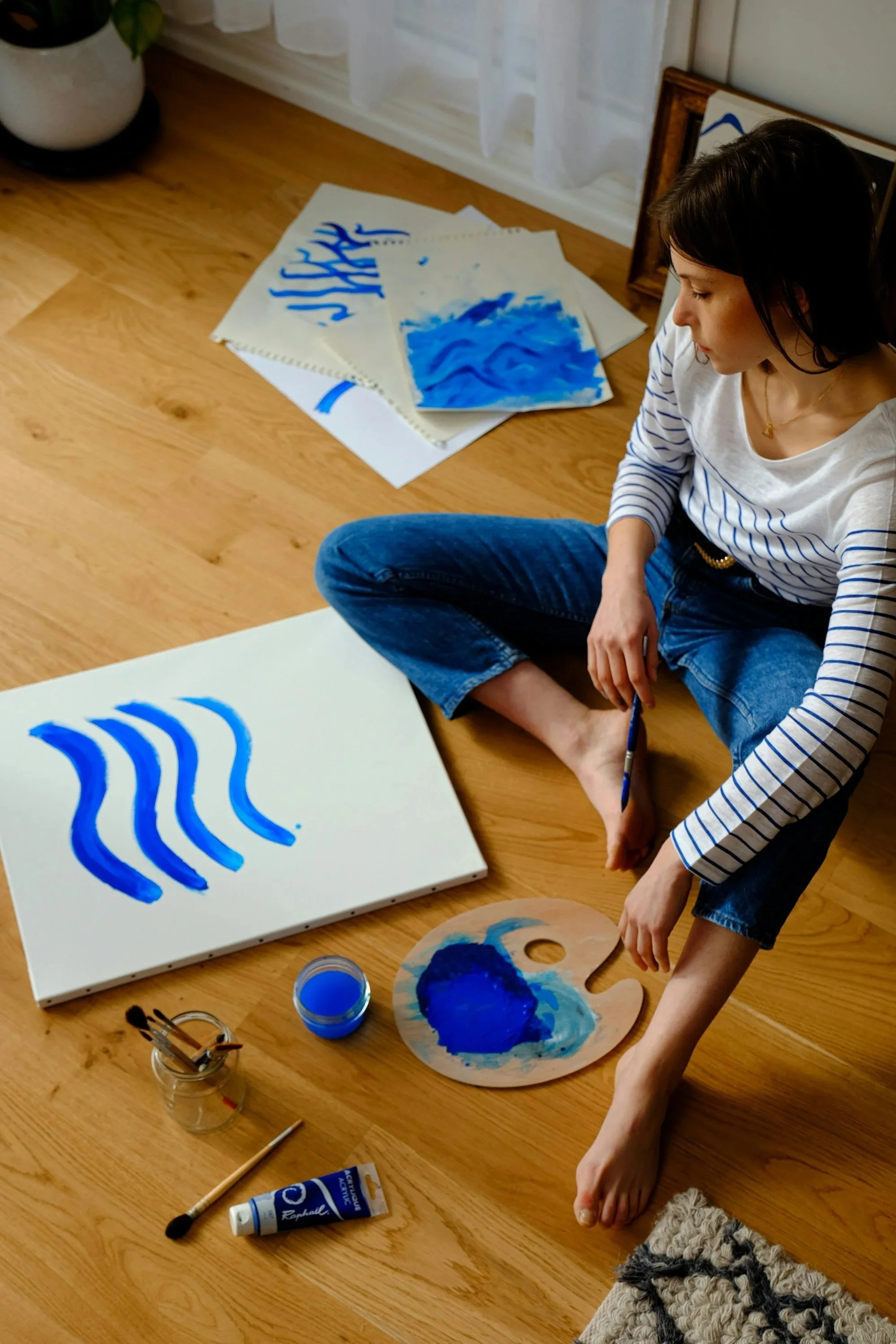
Grief & Loss Therapy
SUPPORT FOR CHILDREN, TEENS, ADULTS and FAMILIES
Grief has taken your joy.
You aren’t who you once were.
The loss of a parent, child, pregnancy, partner, your health, or the life you thought you’d have has changed you. How could it not? But you’re not sure you like this new version of yourself.
You feel hollow.
Disconnected.
A shell of who you once were.
It’s easier to close the curtains and stay in bed. The sun feels too bright. Everything hurts. You don’t want to go out anymore.
Grief is lonely work.
But you don’t have to do it alone — and joy is possible again.
Walking with grief is lonely. But you don’t have to be alone, and joy is possible again.
When Grief Goes Unattended
Many people try to push grief away.
You tell others, “I’m fine.”
You tell yourself, “I should be over this by now.”
But grief doesn’t disappear when it’s ignored. It goes underground.
Unprocessed grief can harden over time. It often shows up as:
anger or resentment
anxiety or emotional numbness
withdrawal or avoidance
impulsive or uncharacteristic decisions
Grief that isn’t tended doesn’t fade — it waits.
Grief and Parenting
Grief doesn’t pause just because you’re raising children.
You may notice you’re not the parent you want to be right now — and your kids notice too. You don’t have the energy to play. You give in because their needs feel overwhelming. You feel guilty, numb, or resentful… and then guilty for that too.
You tell yourself, “I should be over this.”
You tell others, “I’m fine.”
But you’re not.
Support matters — not to erase grief, but to help you carry it without losing yourself or your connection with your children.
Children grieve differently.
Children don’t grieve the way adults do. They often don’t have the words to say “I’m sad” or “I miss them.” Instead, grief shows up through behavior, play, and the body.
You might see:
difficulty settling or sleeping
aggression or increased irritability
withdrawal or curling inward
stomachaches or headaches
increased caretaking or “parentified” play
avoidance of talking about the loss
Even losses adults may minimize — a pet, a move, divorce, or a change in caregivers — can have a deep emotional impact.
Time alone does not heal grief, especially for children. What isn’t supported can get “stuck,” shaping beliefs, coping strategies, and emotional patterns well into adulthood.
Early, attuned support makes a difference.
Grief Therapy That Honors the Whole Nervous System
As a Certified Grief Professional, I work with complex, traumatic, developmental, and relational grief in both children and adults.
I also bring lived experience to this work. I know grief not only clinically, but personally. That depth shapes how carefully and honestly I walk alongside clients.
We do not focus on the outdated “five stages of grief.”
Grief is not linear, tidy, or predictable.
Instead, we work gently with the Four Tasks of Mourning, always on the client’s own timeline:
accepting the reality of the loss
allowing space for the pain of grief
adjusting to life without what was lost
finding an enduring connection while moving forward
This approach supports post-traumatic growth — not by rushing healing, but by creating safety, meaning, and resilience around the loss.
For children, this work happens through play, regulation, and relationship.
For adults, through attuned presence, nervous system repair, and meaning-making.
Teens and Grief
Teen grief is often misunderstood — and frequently missed.
Adolescents are navigating identity, autonomy, and intense emotional development at the same time they are grieving. They may look “fine” while struggling deeply underneath.
Grief in teens may show up as:
irritability, anger, or emotional shutdown
risk-taking or impulsivity
perfectionism or pressure to “hold it together”
withdrawal from family
sleep changes or physical complaints
existential questioning or loss of meaning
Teens don’t always want to talk — but they do want to be understood. Therapy offers a space where they don’t have to protect adults, perform strength, or minimize their pain.
Post-Traumatic Growth
Healing doesn’t mean forgetting.
It doesn’t mean the loss stops mattering.
Post-traumatic growth is about learning how to live with grief — allowing it to soften rather than harden you, to expand your capacity for depth, compassion, and meaning.
There is often a thread of joy woven into even the deepest grief. Not the old joy — but something quieter, truer, and more resilient.
The worst has already happened.
You don’t have to carry it alone.
Grief will change you — but it doesn’t have to hollow you out.
With the right support, you can grow around the loss. You can find moments of light again. You can laugh without guilt. You can reconnect with yourself, your children, and your life.
The worst has already happened.
You don’t have to carry it by yourself.
It’s okay to ask for help.
It’s okay to start now.
You Don’t Have to Do This Alone
The sunlight can feel good again.
If you or your child are struggling with grief or loss, support can make all the difference.
Let’s talk.
You’re brave. You don’t have to do this alone.
Ready to Begin?
Frequently Asked Questions
-
Children grieve in ways that often look very different from adult grief. Instead of talking about sadness, grief may show up through behavior—regression, irritability, withdrawal, play themes, physical complaints, or big emotional swings. Children also move in and out of grief; they may seem fine one moment and overwhelmed the next.
Because of developmental factors, children often engage in magical thinking. They may quietly believe they caused the loss, could have prevented it, or that certain thoughts or behaviors make it worse—even if they never say this out loud. These unspoken beliefs can shape how grief settles in the nervous system.
Children don’t “get over” grief by talking it through once. They process loss slowly, in layers, and often through play and relationship. With attuned support, they can make sense of what happened in developmentally appropriate ways and continue to grow around the loss, rather than carrying it alone.
-
Yes. Children can experience traumatic grief, complex grief, and cumulative grief, especially when a loss is sudden, frightening, or layered with instability (such as conflict, relocation, or multiple losses). Traumatic grief can interrupt a child’s sense of safety and show up as anxiety, regression, aggression, perfectionism, or emotional shutdown. With attuned, developmentally appropriate support, children can process grief in a way that restores regulation and supports healthy growth rather than long-term distress.
-
It is never too late. Grief does not follow a timeline, and unprocessed loss often resurfaces during new developmental stages, transitions, or stresses. Children (and adults) may revisit grief years later as their capacity to understand and integrate the loss deepens. Therapy offers a safe space to gently work with what may have gone underground, allowing grief to move instead of remaining stuck.
-
Absolutely. We all grieve many kinds of losses, including divorce or separation, adoption or foster placement, loss of a pet, miscarriage, infertility, illness, disability, moves, school changes, or the loss of a hoped-for future. These experiences can deeply impact a nervous system and sense of self, even when others minimize them. Therapy helps us name, express, and integrate these losses in a way that supports resilience and emotional health.
-
Infant loss can affect parents in very different ways—even within the same family. One parent may want to talk, remember, and mark the loss openly, while another may cope by staying busy or minimizing reminders. Neither response is wrong. Grief after infant loss often includes shock, profound sadness, anger, guilt, numbness, and a sense of identity disruption. Therapy can help parents understand each other’s grieving styles, reduce isolation, and find ways to stay connected while honoring the loss.
-
Grieving together does not mean grieving the same way. Families benefit from creating space where each person’s experience is respected without pressure to “move on” or feel a certain way. Children, parents, and siblings may all need different forms of expression—play, ritual, silence, storytelling, or movement. Therapy can support families in finding shared language, meaningful rituals, and moments of connection while allowing individual grief to unfold at its own pace.
-
Yes. Infant loss, miscarriage, stillbirth, and pregnancy loss carry profound grief that is often minimized or misunderstood. These losses affect parents, siblings, and the family system as a whole.
I support families navigating both the acute pain of loss and the long-term impact it can have on attachment, parenting, and identity. Grief after infant loss is not something to “get over”—it is something to be gently integrated.
-
Teens often grieve internally. They may appear detached, irritable, numb, or “fine,” while carrying intense emotions beneath the surface. Grief can show up as risk-taking, withdrawal, changes in identity, or sudden shifts in mood or motivation.
Teens are also navigating autonomy, privacy, and identity, which can make grief feel especially isolating. Therapy gives teens a place where they don’t have to protect anyone else or explain themselves.
-
That’s okay. Therapy does not require talking. Many teens process grief through presence, creative expression, metaphor, silence, or shared activities. Talking often comes later—if it comes at all.
What matters most is that your teen feels respected, not pressured, and emotionally safe. Regulation and connection come first; words follow when they’re ready.








